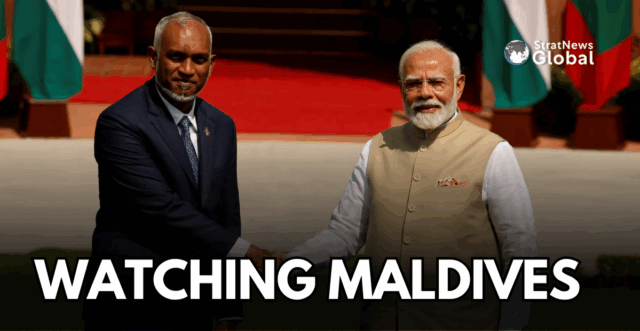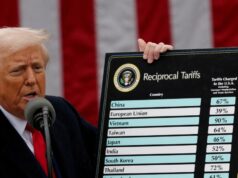It’s been less than 10 days since Prime Minister Modi visited the Maldives on invitation by President Muizzu, and the consensus in many quarters in India is of the remarkable turnaround achieved, not solely because of the visit, but it was certainly the icing on the cake.
It underscored that despite President Mohammad Muizzu’s in-your-face India Out election campaign of 2023, done in alliance with former president Mohammad Yameen, good old-fashioned common sense finally prevailed.
But is that a guarantee of no more downs in the relationship? Democracy is an uncertain beast even at the best of times, and appeals to nation, faith, or anger against the outsider can always be drummed up.
India is not without options. It has friends in the Maldives, politicians like Mohammad Nasheed, often referred to as Maldives Mandela for his singular contribution to bringing democracy to the island.
Nasheed is back after a prolonged period overseas and appears all set to return to public life. In an interview with The Week magazine, he said:
“It is important for us to be able to connect with India’s rapid economic growth. India is now one of the largest economies in the world. We understand that India’s prosperity is not meant to be achieved in isolation or at the expense of its neighbours.”
He also noted: “India is broad-shouldered and resilient. People may say different things in various quarters, but India has always maintained its strategic focus.”
It was a timely reminder to his people that, despite ‘India Out’, Delhi kept its balance, did not interfere, and waited for the political storm on the island to blow itself out.
At a recent event in Delhi where the Maldives was the subject of discussion, scholar and Maldives watcher Aditya Shivamurthy of the Observer Research Foundation said, “India knew that certain kind of reactions would come from Maldives if there is a government that has been elected on nationalism. So, in Muizzu’s initial days, India tried to play silent diplomacy.”
But India will be watching Muizzu closely, even warily. His proximity to the Islamists may be a cause for concern. His father-in-law is reported to be a radical Islamic scholar, while his brother-in-law, Sheikh Abdullah bin Mohamed Ibrahim, is president of the Jammiyath al-Salaf, a conservative organisation committed to the strict application of Islamic rules and education.
Mariah Didi, a former Maldivian defence minister who spoke at the Delhi event, warned that “Their ultra-nationalist agenda is especially more targeted at India than anything else.”
According to Bitter Winter, an online magazine on religious liberty and human rights, in July 2023, the US State Department noted 18 Islamic State and Islamic State Khorasan facilitators and two Al-Qaida operatives, along with 29 associated companies, operating on the island. But Muizzu seems unwilling to discuss it.
The Maldives has the dubious record of the highest per capita enrolment of its citizens in the Islamic State. The Lashkar-e-Tayba is active here, as also other ultra-fundamentalist Islamist groups from Pakistan.
For now, Modi seems ready to forge ahead with Muizzu rather than be bound by the past. Maldives remains a strategically important neighbour for India, and therefore, it must remain engaged at as many levels as possible.





